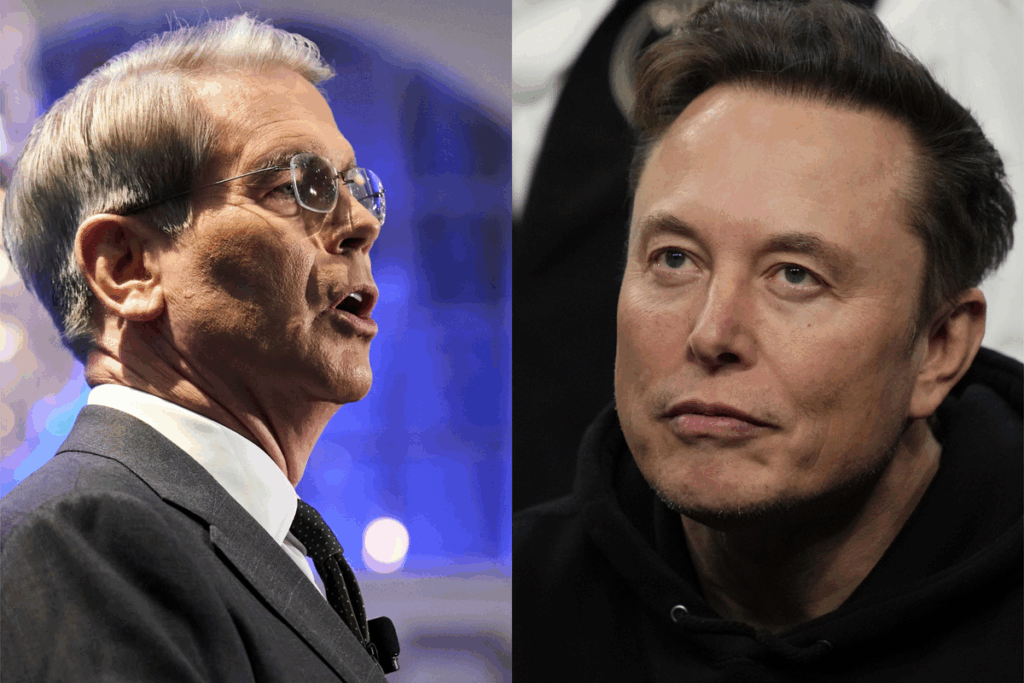In a dramatic turn of events that underscores the growing tensions within President Donald Trump’s administration, Elon Musk, head of the Department of Government Efficiency (DOGE), and Treasury Secretary Scott Bessent engaged in a heated confrontation in the White House’s West Wing. The altercation, witnessed by President Trump himself, highlights the escalating discord over fiscal policy and administrative control within the highest echelons of the U.S. government.
The Confrontation: A Clash of Titans
The incident occurred when Musk attempted to unilaterally appoint Gary Shapley, a mid-level IRS official, as the acting commissioner of the Internal Revenue Service without Bessent’s consent. This move was seen as a direct challenge to Bessent’s authority, leading to a fiery exchange between the two officials. Sources report that the shouting match was intense, with Musk becoming increasingly confrontational, prompting President Trump to intervene and ultimately side with Bessent, resulting in Shapley’s removal after just three days in the position.
Divergent Visions: Reform vs. Stability

The confrontation between Musk and Bessent is emblematic of a broader ideological divide within the administration. Musk, known for his aggressive cost-cutting measures and disruptive approach, has been pushing for rapid reforms aimed at slashing government spending and streamlining operations. His tenure at DOGE has been marked by sweeping cuts and controversial firings, leading to operational setbacks and widespread political concern.
In contrast, Bessent advocates for a more measured approach to fiscal policy, emphasizing stability and gradual reform. His resistance to Musk’s unilateral decisions reflects a commitment to maintaining institutional integrity and avoiding hasty changes that could destabilize key government functions.
Fallout and Implications
The fallout from the confrontation has been significant. Musk’s actions have not only strained his relationship with Bessent but have also alienated other senior officials, including Secretary of State Marco Rubio and Transportation Secretary Sean Duffy. His unscripted remarks and abrupt policy edicts have forced political appointees to scramble to explain his decisions, leading to legal and political fallout from sweeping cuts to federal programs, including biomedical research.
Moreover, Musk’s aggressive reforms have had repercussions beyond the political sphere. Tesla, his primary business, has suffered a sharp drop in profits, revenue, and stock value, largely attributed to Musk’s polarizing political role. The global Tesla boycott and stock decline have prompted Musk to hint at stepping back from his government role, although tensions remain high, amplified by his continued public criticism of Bessent and other officials.
The Bigger Picture: A Cabinet in Turmoil
The Musk-Bessent clash is symptomatic of deeper divisions within Trump’s administration. The appointment of wealthy business figures to key government positions has sparked concerns over potential conflicts of interest, with ethics experts warning of a “potentially the greatest ethics cataclysm in the history of our government”.
Furthermore, the administration is grappling with significant turmoil involving other key figures, such as Defense Secretary Pete Hegseth, who is embroiled in controversy for discussing sensitive military details via Signal, causing internal chaos at the Pentagon and triggering suspicions of leadership instability.
Conclusion: A Tipping Point?
As the Trump administration navigates these internal conflicts, the question remains whether the president can maintain cohesion among his top officials. The public confrontation between Musk and Bessent underscores the challenges of balancing aggressive reform with institutional stability. With Musk’s legal government service cap nearly reached and his public and political support declining, his future role in the administration remains uncertain. The coming weeks will be critical in determining whether the administration can reconcile these differences or if further divisions will undermine its effectiveness.





